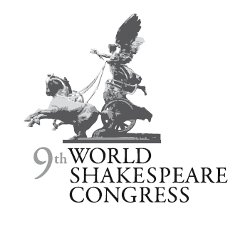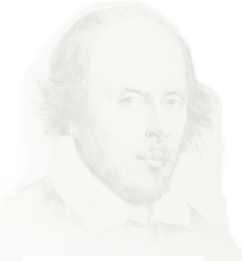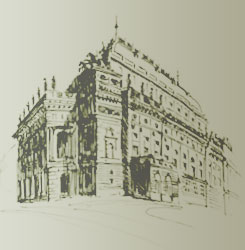Workshops
1. Shakespeare Without Chairs, Carol Chillington Rutter (CAPITAL, University of Warwick, UK)
This practical workshop is aimed at Higher Education teaching, that is, undergraduate and postgraduate teaching of Shakespeare in universities. It disseminates work developed in 'Shakespeare Without Chairs' seminars at the CAPITAL Centre, University of Warwick, that gets students out from behind desks and onto their feet to think beyond the written text of the Shakespeare script to the performances that that script invites. Some students think of this as '3-dimensional literary criticism'; others, as a way of constantly reminding themselves that a Shakespeare play = words + performance and that thinking about performance is as important to understanding what the play is doing as working on the words. This workshop will concentrate on The Winter's Tale. Like its partner workshop, Stand Up for Shakespeare, it will show HE teachers how to plan a practical workshop – and to what ends. It will develop a repertoire of physical activities – 'Precious Object/Toxic Waste' – that will feed in to close readings of two scenes that participants will explore on their feet.
2. The Cambridge World Shakespeare Online, Katherine Rowe (Professor and Chair, Bryn Mawr College, USA), Bruce R. Smith, Professor (University of Southern California, USA)
Like many fields in the humanities, Shakespeare studies is experiencing rapid development in digital tools and online archives that support the daily work of a wide variety of users: scholars, school students, university students, actors and directors, and theatre audiences. Indeed, we are entering a second phase of digital innovation (“Shakespeare 2.0,” we might call it), marked by the global reach and interactivity of online media and by significant challenges of scale as archives for performance and adaptation, bibliography, facsimiles, full-text searching, and a host of historical documents proliferate online. Cambridge World Shakespeare Online (CWSO) is being designed to catch this wave and to meet these challenges. Under development are plans for combining the complete texts of the New Cambridge Shakespeare editions with the 300+ articles of the Cambridge World Shakespeare Encyclopedia with direct links to digital archives like those of the British Library, the Folger Shakespeare Library, ArtStor, the Department of Modern and Contemporary Performance at the Victoria and Albert Museum, and the “Global Shakespeare” performance archive at MIT. A demonstration of the prototype for CWSO will set up the main purposes of this workshop: to gather responses and suggestions about the design and functions of CWSO from the congress’s international cadre of Shakespeareans and to explore the possibility of the International Shakespeare Association as the sponsor of an on-going board to vet permanent contributions to CWSO by its users.
3. Stand up for Shakespeare, Jacqui O'Hanlon (Director of Learning RSC)
Jonothan Neelands (University of Warwick)
This practical workshop will offer an experience of the active theatre based approaches to teaching Shakespeare developed by the Royal Shakespeare Company (RSC) and the University of Warwick. The approach is closely focussed on the three principles of the RSC's Stand Up For Shakespeare manifesto - do it on your feet, see it live and begin earlier. The session will demonstrate how an Othello workshop might be planned in order to give children and young people an engaged and critical experience of the play. The RSC and Warwick partnership has successfully developed transferrable drama and theatre exercises and techniques which are accessible for teachers to use in their own work. They have also developed ways of structuring and sequencing a workshop journey towards a strong sense of the experience of Shakespeare as theatre. These approaches have been used in a wide range of educational settings including schools with challenging circumstances. The second dimension of this work is an emphasis on ensemble based learning to mirror the RSC's processes of ensemble based theatre making. In ensemble based learning there is a focus on developing critical thinking and social as well as artistic engagement on making sense of Shakespeare. The skills and values identified with the RSC ensemble are the foundation for the teaching and learning of Shakespeare in schools.
4. Global Shakespeares in the Digital Archive: Peter Donaldson (Ford Foundation Professor of Humanities, MIT) and Alexander Huang (Penn State and Research Affiliate at MIT)
Participants: To be announced. Scholars and graduate students attending the World Shakespeare Congress are welcome to sign up for the workshop.
Workshop description: The age of global Shakespeares and digital video archive is upon us, and online video research tools have become indispensable when we research and teach worldwide performances of Shakespeare. It is an age when Shakespeare and world cultures foster symbiotic and antithetical relationships with equal force. This workshop serves two purposes:
(1) to introduce participants to the resources, research tools and new pedagogical possibilities afforded by the MIT Global Shakespeares digital performance archive and research space located at http://globalshakespeares.org/ The project provides global, regional, and national portals to Shakespeare productions within a federated archive. There are portals to Shakespeare performances in the UK and North America, the Arab World, India, Asia, and Brazil, containing full videos and video highlights.
and (2) to work with practitioners or users of digital Shakespeare archives and participants without any experience but are curious about new pedagogical possibilities; to brainstorm about the practical and theoretical implications of a broad range of digital Shakespeare projects including video and textual archives. What can one do with these digital tools that has not been possible until now? Are there any limitations or drawbacks? What critical resources might we bring to thinking about the place of the archive in Shakespeare studies today?
5. Acting Out with Incarcerated Youth at Play : “stand and unfold yourself”
The Actors' Shakespeare Project (Boston, USA)
The Actors' Shakespeare Project was founded in 2004 by a collaborative group of Boston's finest actors and teaching artists. ASP was created in the belief that vibrant, resonant, text-based, actor-based Shakespeare productions matter in Boston's diverse neighborhoods and communities.
Since 2004, ASP has produced 29 plays in 16 unconventional venues in metro Boston and developed a strong roster of education and outreach programs. The cornerstone of our outreach work is Incarcerated Youth at Play in Massachusetts Department of Youth Services resident facilities for boys and girls.
ASP teaching artists work with youth inside facilities to explore and perform scenes from a Shakespeare play for an audience. These youth give voice to their stories and deepen their artistic skills through ensemble building, character development, and text and voice work with ASP company artists.
This workshop will give an overview of the kinds of activities ASP does with youth, the structuring and sequencing of our curriculum, and the documented impact of the program. We do performance-based work with Shakespeare’s text with youth so we can stand and unfold ourselves in relationship with one another. As we delve into the powerful and rich world of Shakespeare’s plays, be it Hamlet, Othello, or Romeo & Juliet, we reveal something about what it means to stand up and speak from ourselves.
6. Dancing in Shakespeare, Nona Monahin (Five College Early Music Program, Amherst, MA, USA)
Shakespeare’s plays contain numerous references to dance, some of which are used to create puns, others to illuminate a particular character or dramatic situation. Dancing also occurs as part of the action of many plays, although Shakespeare does not specify which dances he may have had in mind. This workshop will begin with an overview of the extant dance sources from late sixteenth- and early seventeenth-century England, France, and Italy, and proceed to a critical examination of selected passages from Shakespeare’s plays. Through a combination of informal discussion, video examples, and, if room permits, physical participation, the workshop will address questions such as the following: how much information do we have about the dances mentioned in Shakespeare’s plays, and is it enough to enable us to reconstruct them? How does a director or choreographer wishing to use period dancing in a production find appropriate dances that fit the given dialogue and action or that can be adapted to do so with minimum alteration to the original choreography? How can Shakespeare’s dance references be made intelligible to today’s audiences? How might this be attempted in productions not using period staging?


